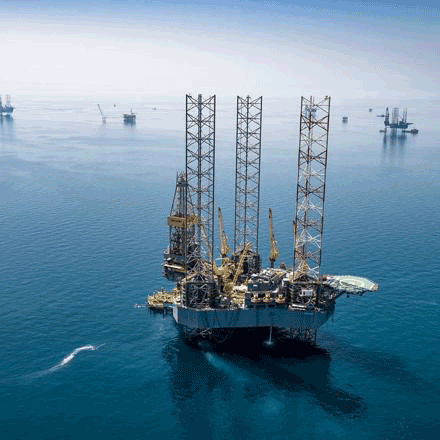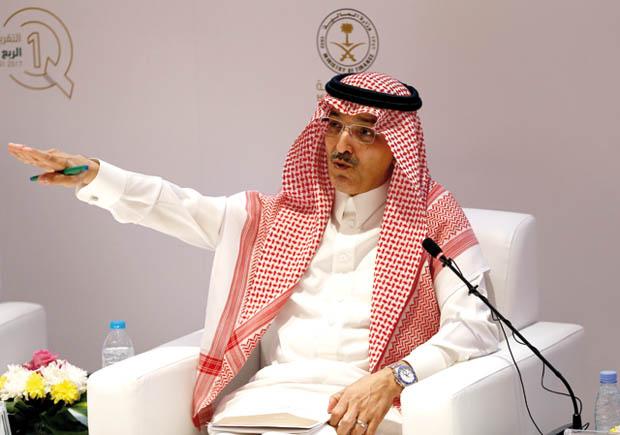You are here
Saudi reports bumper budget surplus, first in nearly a decade
By AFP - Dec 08,2022 - Last updated at Dec 08,2022
RIYADH — Saudi Arabia said Wednesday it recorded its first annual budget surplus in nearly a decade, beating its own projections in a year of elevated oil prices.
The surplus for 2022 amounted to 102 billion Saudi riyals ($27 billion), representing 2.6 per cent of GDP, according to preliminary estimates, the finance ministry said.
That compared to a surplus of 90 billion Saudi riyals that had been projected for 2022 at the end of last year.
The world's biggest crude exporter also preliminarily recorded GDP growth of 8.5 per cent for the year, the finance ministry said, higher than the 7.6 per cent predicted by the International Monetary Fund.
The budget approved for 2023 foresees a surplus of 16 billion Saudi riyals ($4 billion) and GDP growth of 3.1 per cent, the ministry said.
The strong data comes as much of the world grapples with widespread energy shocks and deepening worries about recession.
The Gulf kingdom has benefited from oil price hikes triggered by Russia's invasion of Ukraine in February.
Yet in a briefing with journalists in Riyadh on Wednesday, Saudi Finance Minister Mohammed Al-Jadaan pushed back on the notion that the surplus resulted from the war.
Instead, he said it reflected investments the kingdom had made in its oil and gas sector as well as growth in non-oil sectors, as officials push the Vision 2030 agenda of economic diversification.
"We invested a lot of money when people did not," he said.
"We are not celebrating the surplus. For us it's not really big news. It's something that we expected. We've been working... to curtail our spending, to increase our non-oil revenues."
Future 'risk'
"Much of the fiscal situation and growth story is of course directly related to high energy prices, and indirectly related to the factors and geopolitical events moving prices," said Robert Mogielnicki of the Arab Gulf States Institute in Washington.
"Yet Saudi Arabia does deserve credit for its fiscal consolidation and economic reforms, which have also helped the overall economic picture."
Yet Justin Alexander, director of the consultancy Khalij Economics, said that while the surplus was "welcome", it could have been higher given that original projections appeared to be based on oil prices of around $70 per barrel while the average over the year will ultimately be around $100 per barrel.
Economic experts say Saudi Arabia needs a crude price of about $80 a barrel to balance its budget.
The numbers are "close to the originally budgeted level," said Alexander, who is also an analyst at the consultancy GlobalSource Partners.
"Therefore almost all the windfall revenue from higher oil prices has been spent and the ministry's projections suggest that these levels of spending will continue in the coming years, creating a risk if oil prices disappoint."
Oil prices have fallen considerably in recent weeks despite a decision made in October by the OPEC+ oil cartel, which Riyadh leads jointly with Moscow, to cut production by two million barrels per day.
This year's surplus is the first since the 2014 collapse of oil prices from more than $100 a barrel, which prompted Riyadh to borrow heavily and draw from its financial reserves to plug budgetary shortfalls.
It also imposed austerity measures like cutting fuel and power subsidies and levying a value added tax.
Jadaan said on Wednesday that such "difficult decisions" were unlikely to be reversed based on the surplus of this year and the expected surplus for next year.
"The last thing we want is actually to change policies in haste," he said.
The surplus will be distributed in the first quarter of 2023, with the majority going to increasing the kingdom's reserves, Jadaan said.
Some of it will go to the National Development Fund and some "may be" transferred to the sovereign wealth fund, he said.
Related Articles
Plunging oil prices could mean the first budget cuts for major exporter Saudi Arabia since 2002 but they are not expected to be large enough to stop growth in the Arab world's biggest economy.
RIYADH — Saudi Arabia announced Thursday it is extending a voluntary oil production cut of one million barrels per day for another month, ke
RIYADH — Saudi Arabia’s budget deficit dropped by 71 per cent in the first quarter of the year, the government said on Thursday, after spend













